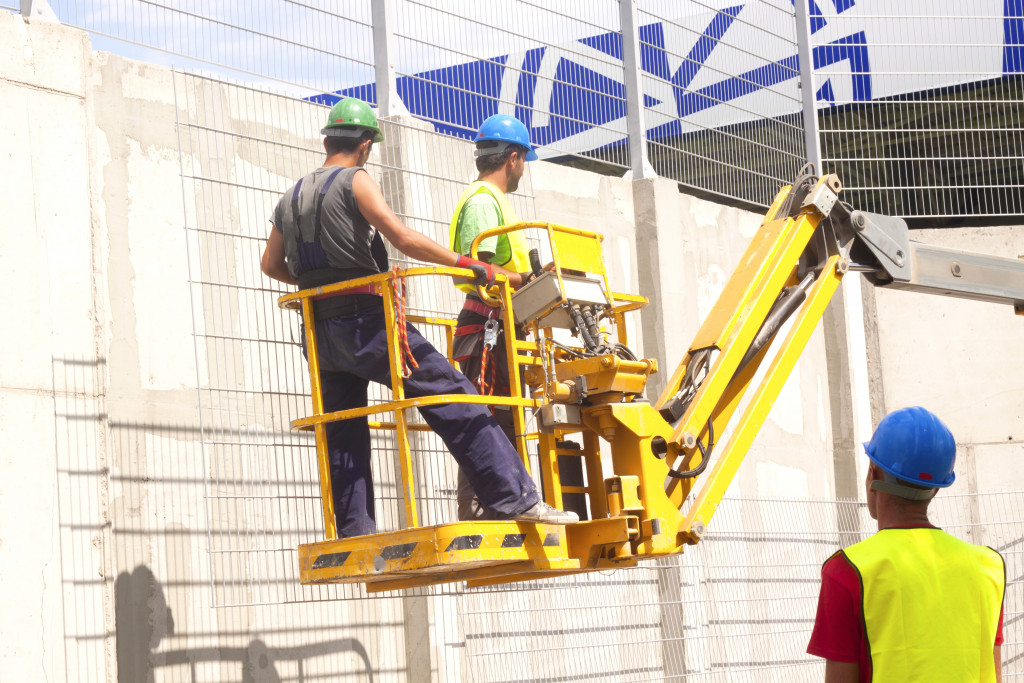If you’re working on a building project in your community, chances are you’re feeling a bit overwhelmed. After all, building projects involve a lot of different moving parts and require careful planning. By following these tips, you can ensure that your building project runs smoothly and efficiently. Keep reading to learn more.
1. Set Realistic Goals
Before you get too far into your building project, it’s essential to have realistic goals about what you hope to accomplish and how much money it will cost. Setting realistic goals will help keep your budget in check and give everyone involved with the project a better idea of what it should look like when completed.
Make sure that everyone is on the same page when it comes to expectations before getting started. For example, if you’re working with an architect, they should be well aware of your vision and budget before they begin creating plans.
In addition, by setting realistic goals, you can plan your timeline more accurately. This will help ensure that the project is completed on time and within budget.
2. Hire Certified Machinery Operators
When it comes to building projects, safety is always the top priority. That’s why you should ensure that anyone operating machinery on the site has the required certifications.
Cranes, for instance, are notorious for being dangerous, and operators are required to have NCCCO tower crane certification. This certification is designed to increase safety on the job site by ensuring that operators are knowledgeable and experienced in operating cranes.
NCCCO certifications are especially crucial for projects with large-scale equipment like cranes, excavators, and other heavy machinery. This is because it can be a hazard to have operators who are not properly certified running the equipment.
3. Get Everyone Involved
It’s vital that everyone who is involved with the building project is informed and engaged right from the start. Having an open line of communication between all parties—from contractors to local government officials—will ensure that any issues or concerns are addressed quickly and efficiently.
Discussing potential problems early on will also prevent any unexpected delays down the road. For instance, if you’re building a project requiring approval from the local government, talk with them before starting construction. That way, any potential issues can be addressed and resolved quickly.
Moreover, having everyone involved in the project from the beginning will help ensure that all tasks are completed on time and within budget. This is because everyone involved will better understand what needs to be done and when it needs to be done, reducing the chances of unexpected delays.

4. Utilize Technology
Technology is a great way to stay organized throughout the construction process, keep track of progress, and even solicit feedback from stakeholders such as community members or local business owners who may be affected by the project.
Utilizing technology such as software programs or apps can also help streamline communication between contractors and other parties involved to save time and money on the project. For starters, many apps allow for the easy sharing of plans and documents and provide real-time progress updates.
In addition to helping you stay organized and up-to-date with the project’s progress, technology can also help you keep track of budgets and costs. By tracking expenses and comparing them to the estimated budget, you can help ensure that the project remains within budget.
5. Create a Detailed Plan
Creating an organized plan prior to beginning any kind of construction project is essential for its success—after all, failing to plan is planning to fail!
A detailed plan should include specifics about design specifications, materials needed for construction, expected budget for completion, the timeline for completion—including allowances for unforeseen delays—and any other information related to the project that could be useful during construction or after completion.
You can also plan about contingencies in case the project does experience any unexpected delays. This way, you can ensure that the project is completed as efficiently and effectively as possible.
6. Monitor Progress Regularly
By monitoring progress regularly throughout each phase of construction using methods such as safety checks or inspections (depending on size or scope), you can rest assured that everything is running smoothly while minimizing delays due to potential problems or issues being overlooked until later stages in development (which would lead to costly fixes).
Regularly monitoring progress also helps build trust among those involved in the building process by ensuring transparency throughout each step along the way. For example, if you’re doing a project that requires approval from the local government, they should be informed and involved in progress checks to ensure that any potential issues are addressed quickly.
Furthermore, by staying actively involved in the progress of the project, you can help ensure that it remains within budget by catching any unexpected costs early on.
Building projects can often seem intimidating due to their complexity. However, by following these tips, you can make sure that your building project runs efficiently from start to finish! From setting realistic goals at first conception to regularly monitoring progress during each stage of development until completion, these tips guide throughout every step along the way so that your building projects run smoothly while staying within budget and meeting deadlines beforehand.




